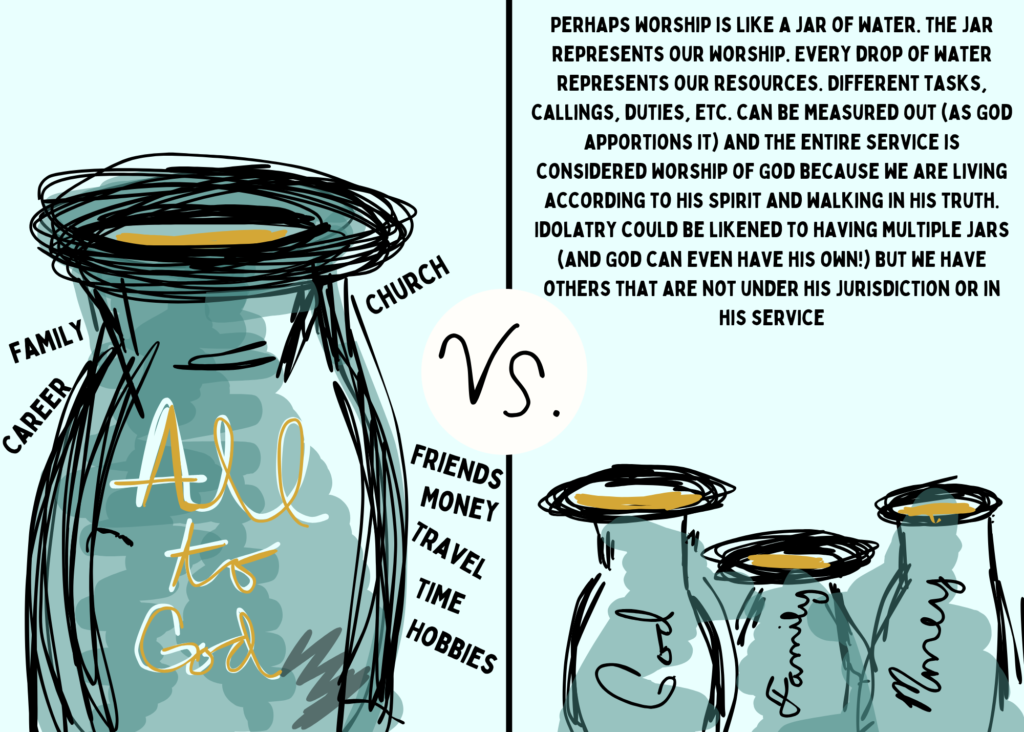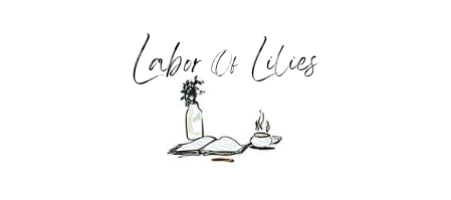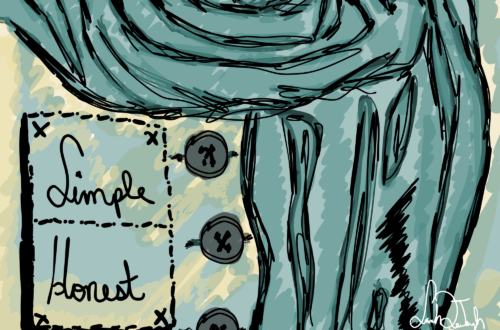I puzzled for the longest time over the story told in Luke 12:13. Maybe you’re like me and read the parable about the rich man’s experience with his crop and his barns, and secretly wondered why building a bigger structure was considered covetous. I had to go to the Lord in prayer about this one, as it seemed on the surface (to my 21st century brain), to be a simple business decision to safeguard his future. Thankfully, I know that when my own instinctive interpretation goes against what is clearly laid out in scripture, it is I who is at fault. In the passage, we meet a man who wants Jesus to arbitrate an inheritance between himself and his brother. The Lord quickly cuts to the heart of the matter and ultimately warns the man in verse 15: “Take care, and be on your guard against all covetousness, for one’s life does not consist in the abundance of his possessions.” He goes on to share a parable which illustrates his point.
“The land of a rich man produced plentifully, and he thought to himself, ‘What shall I do, for I have nowhere to store my crops?’ And he said, ‘I will do this: I will tear down my barns and build larger ones, and there I will store all my grain and my goods. And I will say to my soul, “Soul, you have ample goods laid up for many years; relax, eat, drink, be merry.”’ But God said to him, ‘Fool! This night your soul is required of you, and the things you have prepared, whose will they be?’ So is the one who lays up treasure for himself and is not rich toward God.” Luke 12:17-21 (ESV)
As is often the case when puzzling over a passage of scripture, it’s helpful to ask a series of questions. The first and most obvious question is this: “What exactly did the rich man do wrong?” The answer is straightforward and listed in the text. Jesus said that the rich man laid up treasure for himself and was not rich toward God. Okay, that makes sense. He wasn’t serving the Lord, he wasn’t rich toward God. How exactly was he not rich toward God? The first apparent thing in reading the parable is that the rich man does not acknowledge the fact that it was God who gave the increase and caused the crops to grow. Secondly, he planned to use the increase solely for his own security (laying away the treasures for himself). Thirdly, the things he prepared were for this life and could not be taken into the next. Ultimately, he failed to serve the Lord. He was rich in this world, but poor in God!
Taking a look at the wrong response naturally leads to the next question: “what is the righteous response when God provides an increase?” This is a tough question to answer because the idea of not making plans that serve self and security is foreign. The concept is not part of our culture at large, or for that matter, a part of Christian culture. Ultimately, the right answer would have been to serve God with the increase- not self. A right response comes down to our heart response! What do we do when we’re blessed with abundance?
Worldly Response:
• Build a bigger barn to hold the excess.
• Trust in Big Barn security and tell our soul we can relax because of the wealth we’ve acquired.
• Use the resources for ourselves.
Righteous Response:
• We are to “seek the things above, where Christ is seated” (Colossians 3:1). We know that the increase belongs to God, because all that we are (our very soul) belongs to Him.
• Realize that our security is in the Lord, not wealth. Our soul can relax because of salvation through Jesus.
• Recognize that all our material, emotional, and spiritual resources are ultimately Kingdom resources because we belong to God.
For the rich man in the parable, his entire existence, security, and plan for his life was built around accumulation of wealth and laying away treasures for the future. Jesus cuts to the heart of the matter in verse 15 when he says that a man’s life doesn’t consist in the abundance of his possessions. For the rich man, his possessions were his upmost priority. Contrasting his example with the template laid out in scripture, we see that instead of possessions, the Kingdom of God is to be what we seek first.
Exploring Covetousness
According to Colossians 3:5, covetousness is idolatry. The word here for idolatry comes from the Greek word εἰδωλολατρεία (pronounced eidólolatria). This literally means image worship, or rather (breaking it down to its roots): image service (Strong’s G1495- eidólolatria). Why is desiring more things idolatry? The answer is built into the Greek definition, it is idolatry because we are serving (worshipping) things (images). Serving things (in a desire to obtain them) instead of God is idol worship. Believers are called to give their lives to Christ. The greatest commandment is to love God with all our heart, soul, mind, and strength (Mark 12:30). Having received a down payment (security) for our salvation, the Holy Spirit testifies that we have been bought by Christ and are no longer our own (Ephesians 1:14). We follow and labor in this world, for as long as we are here, not for ourselves, but for God’s Kingdom. We do all this knowing that what we are striving to attain is not temporal, but eternal! When our focus becomes acquiring things for the sake of our treasure here on earth, we’re no longer in service of God’s Kingdom, but our own flesh. We are not called to live for a temporal reward. If serving God’s Kingdom is worship, then serving our own “kingdom” or this world’s dark kingdom is idolatry.
Perhaps worship is like a large jar of water. The entire jar represents our worship and devotion to God. Every drop represents our resources. Different tasks, callings, duties, etc. can be measured out (as God apportions it) and the entire service is considered worship of God because we are living according to His Spirit and walking in His truth. Idolatry could be likened to having multiple jars (and God can even have his own!) but we have others that are not under his jurisdiction or in his service.

As a Christian, I am Christ’s person, slave, and part of His body. What chaos would ensue if a foot decided not to listen to the head? Worship is service. If I use my life to serve anyone or anything outside of the will of Christ (if I go against the head of the body) I am committing idolatry.
Service to self = idolatry
Service to culture = idolatry
Service to gaining more wealth and treasure = idolatry
Questions to ask myself:
1. Who is sitting on the throne of my heart and apportioning my resources?
2. Am I keeping “jars” off limits and only for myself?
3. In what areas am I tempted to build “bigger barns?”
4. Is there an increase that I haven’t laid at the feet of God, or asked him what He would have me to do with it?
Footnote: BibleHub, “Strong’s G1495- eidólolatria” https://biblehub.com/greek/1495.htm.






